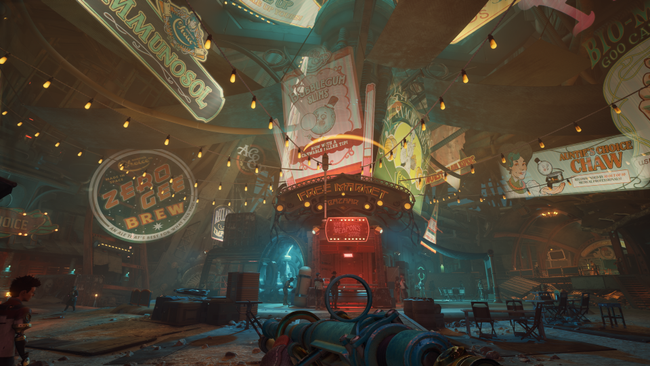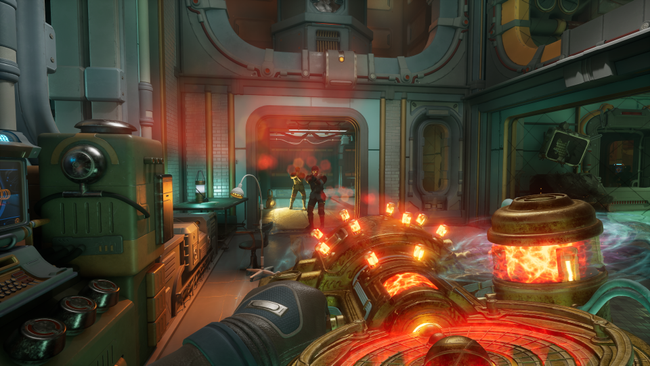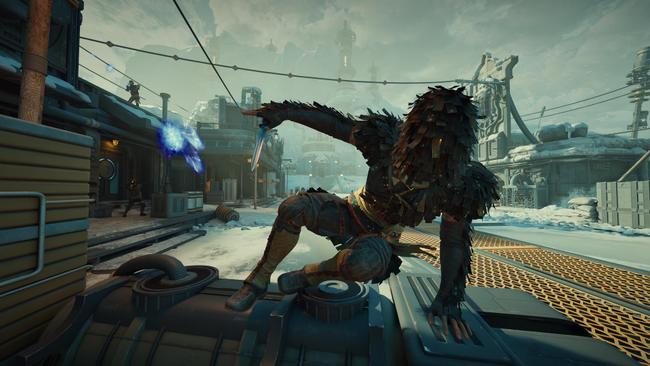
“Not every game is for every single person. Sometimes you have to pick a lane” - The Outer Worlds 2’s director on meaningful role-playing consequence and banning respec
On RPG Site, we have an unofficial motto. ‘Everything is an RPG nowadays’. Our tongue is firmly planted in our cheek when I say it, but to some degree it’s sort of true - various RPG mechanics have enjoyed a parasitic spread into every genre you can think of, from EXP in shooters to skill trees in brawlers.
But then you have the real RPGs. You know the sort of stuff I’m talking about. Crunchy, deep, systems-driven. For the sickos out there, many of whom religiously visit this website. And in The Outer Worlds 2, the genre veterans at Obsidian seem absolutely determined to do one thing - double down on those sorts of systems.
The role-playing charge is led by an unflinching focus on choice and consequence - with as heavy an emphasis on the repercussions as the player agency. We’re not just talking about a branching narrative here, but also in systems - best indicated by the game’s dedication to a wild and wonderful suite of perks. In a hands-on demo, I spend a significant amount of time just scrolling the perks list - which is plentiful, many of them also surprisingly impactful.
“So, I love perks. The first game obviously had perks, but they were more generalist,” explains The Outer Worlds 2 game director Brandon Adler. Adler didn’t work on the first Outer Worlds, but his resume is a litany of classic RPGs, many of them from Obsidian, from Alpha Protocol to Pillars of Eternity and, yes, that holy grail that is Fallout: New Vegas. Even talking to him about RPG mechanics for a few minutes, one can quickly tell that he is One Of Us.

“A lot of [the Outer Worlds perks] were like, move faster or have more health. Those were fine,” Adler continues. “You need some perks that are general purpose as well, but I like perks where it's like I can really change my gameplay with them and really interact with our skill system, so if you take certain skills that opens up a bunch of perks for you... I mentioned in the dev direct, we looked at New Vegas and went like, yeah - that's a really cool system. Let's bring that forward - but we want that even more.”
The result is a ridiculous number of perks. Adler isn’t even sure how many his game has, but he reckons it’s somewhere north of 90 different ones.
“I feel like you can do bigger gameplay changes with those things,” Adler explains. “Now I can build out really crazy combinations of stuff and get these fun gameplay effects going. That was important because I personally like that and find that fun.”
All of this tracks. Part of the job of a sequel is to expand things out and up the ante - so more perks, and perks which have a greater impact on player characters. But here’s the bigger catch, and where we really begin to see the vision of Adler and his team emerge: The Outer Worlds 2 does not have a character respec option. This is a feature removed from the last game - but it’s one removed for reasons of game design philosophy above all else.

“We don't allow respec. The reason is... so,” Adler begins, grinning. There’s a deep intake of breath. Can of worms: Opened.
“Lots of people love respec,” he diplomatically notes. “And that is definitely one way you can go about things. I personally want the player to understand their choices are permanent - they matter - and then they think more about their choices.
“There's a lot of times where you'll see games where they allow infinite respec, and at that point I'm not really role-playing a character, because I'm jumping between -- well my guy is a really great assassin that snipes from long range, and then oh, y'know, now I'm going to be a speech person, then respec again, and it's like–”
There’s another pause. In the realm of promoting a video game, there’s a delightfully strict tightrope to be walked here - to put forward a vision that Adler admits will be at least somewhat divisive without upsetting the game design predilections of a certain segment of the audience - or his fellow designers. At the same time, it's clear this team wants to stake a claim and take a stand on this particular RPG design precept.
“For me, it's not wrong that people like to play like that. But I just like to make sure... Look, if we're going to do The Outer Worlds 2, I want to make sure that the role playing is really strong. I want to make sure that you're building your character and really doubling down - making sure that role-playing comes through the whole experience.”
This matters. RPG character progression - be it perks, stat upgrades, or whatever else - are are a sum of a character’s experiences, and they aren’t all universally positive. Some will be positive regardless of what your situation is. Others will be negative in the same way. Many will also be situational and circumstantial, meaning the nature of their effect will somewhat depend on your character build and play style.
Here’s an example. If you’re a compulsive gun reloader - even when the magazine isn’t yet empty - you can unlock ‘Overprepared’. With that in play, all of your weapons will have a magazine 50% bigger than normal - but if you accidentally fire every bullet from a magazine without reloading before hitting empty, you get a temporary damage debuff thereafter. If you’re going to be a premature reloader, you must commit to it. If you take that perk and then it isn’t working for you… well, that’s your choice and consequence. Once you get a perk, flaw, or trait - it’s with you. Forever. That’s role-playing, baby!
There are subtle massaging elements, it has to be said. You can still respec in the game's starting area - but will be locked out from the option once you leave it. Still, that leaves people able to intially experiment. Further, you can tab through menus to see all of the available progression in detail - allowing for a degree of planning in advance if you so wish. Nevertheless, it's a big swing to take.
What was it like pushing such a system through, I wonder? It’s music to my RPG nerd ears, but I wonder about the broader implications. About Game Pass users who might only ‘drive by’ play the game for a few hours, who are difficult to capture - or indeed about selling such system design to publisher Microsoft, whose primary metric for success is now engagement on that subscription service.
“It's probably not a popular thing for me to say,” Adler admits with a chuckle, “But, like, that's just not as important. That doesn't come into the calculus of the cool, fun game I want to make.

Ultimately, the skill, trait, and character progression systems are all built around this philosophy - and with a knowledge that it will bother some players. But with these deeper RPG systems and improvements to other systems - tighter shooting, better-looking dialogue and story presentation, and so on - Obsidian hopes to make a few hard-line role-playing converts. These choices are also likely to turn some people off entirely - but it's refreshing to see a developer on a higher-budget studio RPG being willing to take that risk.
“We want to respect people's time and for me in a role-playing game this is respecting somebody's time,” Adler argues. “Saying your choices matter, so take that seriously - and we're going to respect that by making sure that we give you cool reactivity for those choices that you're making. That's respecting your time.
“So you know your question was, was, how do you cater to that? And I would say you've got to be clear with people early on what the experience they're getting is. If that's not for them, that's understandable. We hope that we can convince you that it is - but I'm also not going to make a game for literally everybody because then I feel it waters down the experience a lot.
“I mean, yeah - we want to make a game that people want to continue playing for a long time, obviously. But I'll tell you, not every game is for every single person. Sometimes you have to pick a lane.”
The Outer Worlds 2 is releasing for Xbox Series X/S, PC, and PS5 on October 29. The Xbox and PC versions will be available day-one in Game Pass.
[This article was updated shortly after publication to offer additional detail on how the opening hours of The Outer Worlds 2, where respec is briefly available, function.]